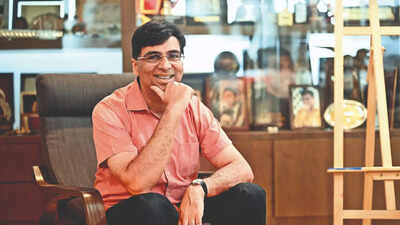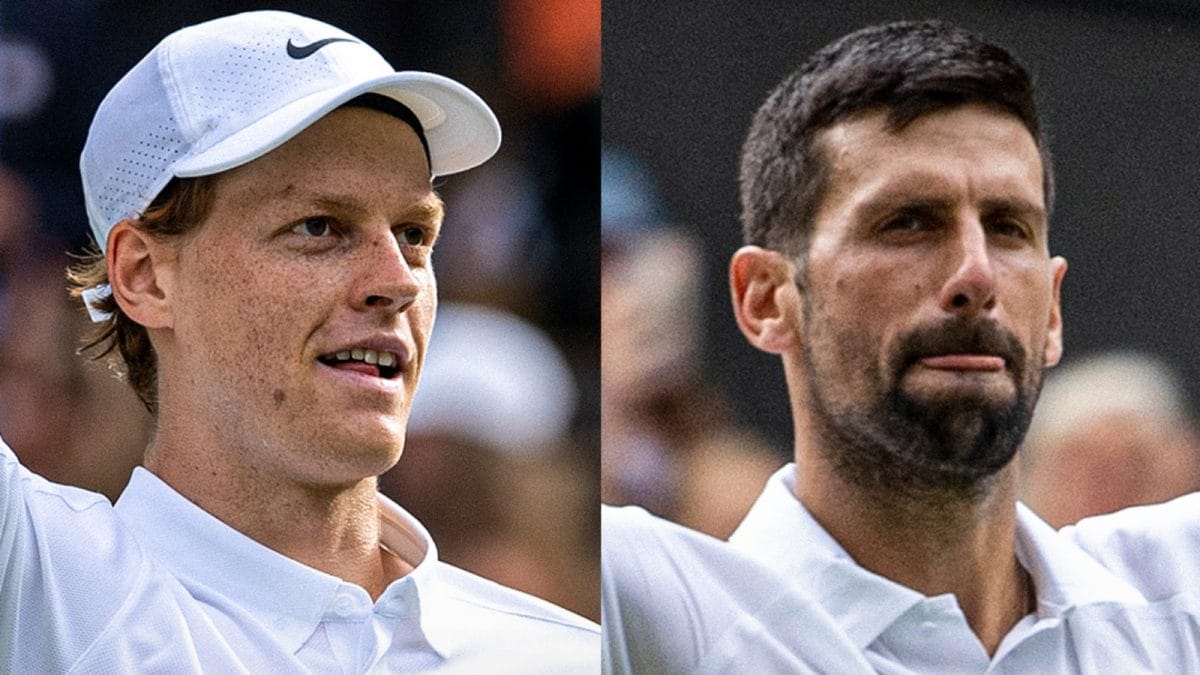ARTICLE AD BOX

The game is receiving much more attention now — it’s frequently mentioned in the media, and people are starting to recognise the names of the top players, says Viswanathan Anand.
On International Chess Day, five-time World Champion Viswanathan Anand reflects on India’s chess revolution, the game’s growing popularity, its evolving formats, and more. Excerpts:How has the attitude towards chess changed in Indian households now compared to the ’80s and the ’90s?The game is receiving much more attention now — it’s frequently mentioned in the media, and people are starting to recognise the names of the top players.
There’s a growing interest on the ground, with fans actively following the sport and keeping track of what’s happening in the chess world.
We need to maintain this momentum. With so many strong players competing at the highest level, it brings a sense of excitement and anticipation. People are curious to know how a tournament unfolded and what’s coming next. It’s important that we continue to build on this growing enthusiasm.You’ve been vocal about chess outreach. What are the key steps India needs to take in the next few years to become the global chess superpower?While India is already one of the leading nations in several aspects of chess, I believe we still haven’t managed to make the game accessible across the entire country. There are dominant states like Tamil Nadu, Maharashtra, and West Bengal that are far ahead in terms of chess development, but the reach is still largely concentrated in urban areas. Given that people today can easily access and play chess through mobile phones and digital platforms, it’s now more feasible than ever to spread the game widely — even within a state like Tamil Nadu.
I’ve seen some of my friends conducting coaching camps in rural areas, which is encouraging. Many of those students are enthusiastic and eager to learn, but they often need more structured guidance as they progress. That’s where we need to keep improving the game’s reach. This is also why I strongly believe chess should be introduced and made easily accessible in schools. In a country like India, where each state has its own educational policies and systems, making it compulsory is a different debate.
But even including it as part of the school sports programme would be a significant step forward.You’ve mentored so many young talents. What do you think is the most overlooked quality that a rising chess player should have?In my view, if you practice regularly, that forms a strong foundation. But one of the most important qualities a player must have is objectivity. You need the ability to view your own game the way a potential opponent might see it. That level of self-awareness allows you to recognise your mistakes, learn from them, and build on your strengths.
These, to me, are the key traits of a strong player. So yes, consistent practice is essential, but equally important is the willingness to learn and grow.What still excites you the most about chess? And what is the one thing that you have maybe become bored of?Rather than saying that something is boring or interesting, I’d say it’s nice to see changes. I mean, chess is going faster and faster, it’s being played in new ways, and I try to learn. I mean, there are many areas which, frankly, I don’t understand, especially because modern computers are pushing the game very fast.
So, keeping track of all these developments is quite difficult, but at the same time, it’s rewarding — because we are learning something new in a sport we’ve been playing for so many decades.What is your take on the rising popularity of blitz and bullet chess formats among Gen Z players. Some feel classical chess is under threat...Classical chess is still very popular, but other time controls are also gaining ground. I don’t think it has to be one or the other. It’s all part of the learning process. For instance, blitz helps train your intuition much more. So, as long as you’re open to learning new skills and adapting, that’s what really matters.
Perhaps the most important lesson for a player today is to be flexible with formats. You should be willing to play in different time controls and aim to perform well in all of them.On the next Anand among the current Indian players“Clearly, the players who have reached the top, like Gukesh and Praggnanandhaa, are the ones future generations will look up to and be inspired by. But we have so many talented players in Chennai that I’m certain there will be more breakthroughs ahead, with more youngsters taking up the game.
And that’s a good thing — because even if you’re one of the best players in the world, you’re not entirely safe in Chennai. There’s always someone close on your heels, pushing the competition.
It keeps everyone motivated and competitive, which is healthy for the sport.”On why Chennai is the chess capital of India...The interest in chess has always been strong in Chennai. Historically, it has been one of the leading cities in the country when it comes to producing chess talent.
In fact, many of India’s earliest International Masters hailed from Chennai. That early lead created a momentum, and as the popularity of the game grew within the city, the tradition naturally continued. We saw a surge of young players taking up the game, and the ecosystem responded well.
In Chennai, people are naturally inclined towards chess. Parents see value in their children learning the game, so they’re encouraged to join summer camps, participate in tournaments, and train seriously.
Over time, this has created a strong and self-sustaining chess culture — perhaps the best in the country.On impact of powerful chess engines & AI“I think information is now available to everyone; whether it’s powerful computer engines or advanced AI tools, everyone has access to the same resources. But the real differentiating skill lies in how you understand and interpret that information, and more importantly, how you retain and recall it when it matters the most.
When you’re sitting at the board, you’re on your own. So, the question becomes, how well have you learnt, and how effectively can you apply that knowledge in real time? At the same time, it’s encouraging to see that more and more people are preserving and developing a solid foundation of basic chess knowledge.
”‘The Soviet Union’s dominance is highly unlikely to be repeated’We’re not there yet, and I don’t think we ever will be. The kind of dominance the Soviet Union once had is highly unlikely to be repeated. I mean, I can’t predict the future, but I would be very surprised if we ever saw that level of domination again.



.png)
.png)
.png)
















 1 day ago
5
1 day ago
5








 English (US) ·
English (US) ·